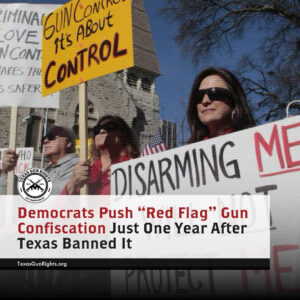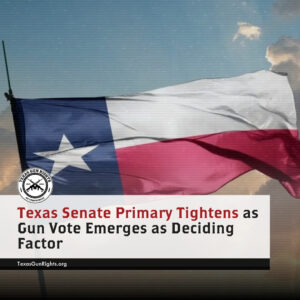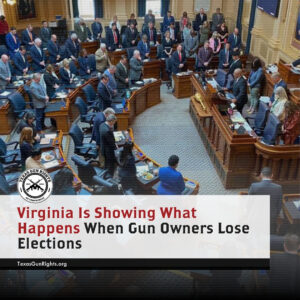The fake news, corporate media would have people believe that there’s overwhelming support for gun control measures. Through the use of skewed polling data and misleading narratives disseminated in the corporate media, legacy media gatekeepers have been able to bamboozle large swathes of the population into believing that gun control is a prudent policy that the majority of the American populace supports.
However, Second Amendment successes, such as the passage of Constitutional Carry in nearly every Republican-controlled state, demonstrates that the narrative about control may not be so clear cut. In fact, there is evidence that gun control might not be as popular as disarmament boosters would make most Americans believe.
According to Gallup that was published on November 18, 2024, support for an “assault weapons” ban has been falling compared to previous polls that tracked the public’s views on gun control measures such as “assault weapons” and handgun bans. This poll was conducted from October 1 to October 12.
The poll specifically found that 52% of Americans back an “assault weapons” prohibition. That said, support for such a ban is considerably lower from Gallup’s initial finding in 2019 where it stood at 61%. It is part of a downward trend taking place since 2022 when it was at 55%.
One curious finding in this poll is that the support for gun control measures such as an “assault weapons” ban is very much partisan in nature. According to the Gallup poll, 82% of Democrats are in favor of a ban on “assault weapons” whereas just 27% of Republicans do. Support for a ban on handguns plummeted to 20%. As far as the partisan support for handgun bans is concerned, only 33% and 6% of Republicans support such a prohibition.
The last time an “assault weapons” ban was in place was from 1994 to 2004. The 1994 “assault weapons ban” was a part of the Violent Crime Control and Law Enforcement Act of 1994. Then-president Bill Clinton signed this bill into law on September 13, 1994. Despite much fanfare about how this ban would put a dent in crime, pro-gun researchers determined that the 1994 ban did not have much of an impact on crime.
Per research from pro-gun economist John Lott, “there was no drop in the number of attacks with assault weapons during the 1994 to 2004 ban. There was an increase after the ban sunset, but the change is not statistically significant.” Gun bans would only give criminals an unfair advantage as they would have the ability to prey upon disarmed individuals who have to depend on increasingly unreliable law enforcement services just to stay safe.
Americans, of all stripes, have increasingly caught on to the futility of gun control and are relying on law enforcement for safety purposes. As a result, the U.S. has been experiencing record numbers of first-time gun purchases in the last 4 years, with some states now further liberalizing gun control laws.
Unquestionably, there are still strong residual pro-gun instincts among the American population. Passing gun control will not be a walk in the park due to large swathes of the population not being ready to conform to the anti-gun agenda. Nevertheless, pro-gun activists should not rest on their laurels. With a Republican trifecta at the federal level, now is the time to build off the current pro-gun momentum and go on offense.
Gun owners have a unique opportunity to roll back unconstitutional gun control measures. However, it won’t be easy due to many Republicans’ propensity to drag their feet on these issues. Relentless pressure will need to be placed on them to ensure that bold pro-gun reforms are implemented at the federal level.







